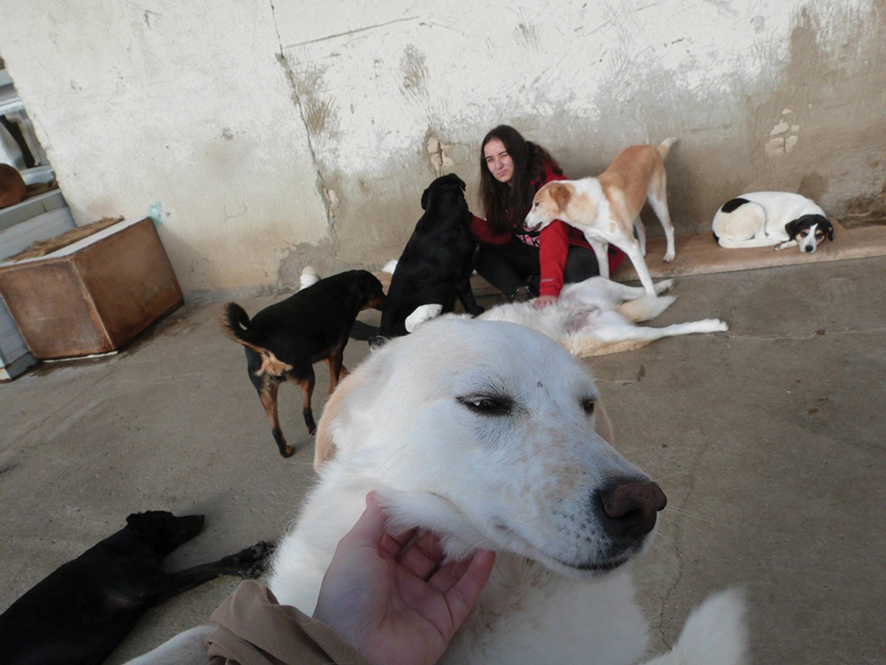Think wine, think food, and you may well think of the great French viticultural areas, Burgundy, Bordeaux, or even Italy. Think skiing and you may think of Austria. Think ancient history and Greece comes to mind; mountain climbing and Everest. “Newcomer” Georgia features rarely in such lists, and yet, beyond the first, it could rightfully feature in all of the above and more.
Yes, it is true the US state of Georgia is no longer mistaken for this beautiful country at the crossroads of Western Asia and Eastern Europe. As the slogan says, “If you think of wine, think Georgia.” Georgia has often been described as “the cradle of wine in the world” by those who acknowledge its long history. And it’s fair, as the country can now trace its wine industry back to the early Neolithic period thanks to the discovery of wine-grape seeds in an amphora.
This small South Caucasus region, green and mountainous, has long been a surprise to new visitors, and those grape seeds aren’t the first time that Georgia has shifted the history of mankind. Georgia hit the headlines with the discovery of a 1.8-million-year-old caveman named Zezva, and his companion Mzia. The discovery of their bones up-ended the commonly told history of evolution, which has long been questioned and revised. It was enough to put Georgia at the center of the archaeological world.
Georgia is marketing itself as one of the oldest civilizations – with some justification. Tourists who visit may come for the specific reason of tasting the flavors of the natural wine. Georgia’s so-called Orange Wine has been gaining appeal because it complements the equally unique-tasting food produced locally.
The Silk Road nation of only 3.6 million people has been trying to restore its economy and its agricultural products, especially its wine markets. Its main trade partner Russia imposed an embargo in 2006 and then it fought a five-day war in 2008 over the breakaway Georgian region of South Ossetia. The government since then has spent a lot of resources and time on promoting the country, and the results have been astonishing, seeing tourism exceed expectations, a diversification in wine sales internationally, and advertising of the historical country clearly paying off.
When the then very eager to penetrate the Western world government said in 2011 that the country expected as many as three million visitors by the end of the year, 50% more than the previous year and the highest figure since 2003, it did not sound particularly believable. Then the prediction for 2015 went up to five million, and it happened. Tourists have flooded the country and, under the new leadership, which inherited an already smooth sailing tourism ship, much has been done, if not undone.
Statistics show that, in total, the country’s tourism administration spent over 10 million lari on advertising alone in 2023, while Q1 2024 brought $807mln in revenue. In 2022, as many as 200 bloggers were sponsored to hashtag and post a status on Georgia. It is quite a number for the country, which still has problems of poverty, and whose many infrastructural projects are still highly dependent on foreign aid. I would not be so concerned about it if not for one detail which has been concerning me over the years.
The golden steps taken by the previous administration to spotlight unknown Georgian food, hospitality and popular landmarks have been somewhat marred by the curse of modern times: Influencers. Yes, with trendy hype, influencers can make everything cheap, and it rarely hits the target: only scrollers. Georgia certainly does not need further such promotion: The world has learned that its wine is ancient, its land is blessed, and khachapuri is a tasty, waist-expanding but unforgettable dish. Meanwhile, Georgians are fleeing the country trying to find better work, and the country’s agricultural markets and production are showing the struggle.
Further, mass Russian immigration has proven to have backfired on the country after the government opened its gates wide to the war deserters and simply those who had had enough of Russia. Russians are smart. They quickly grasped the opportunities and began opening cafes and restaurants, as well as offices, thanks to the one-year stay loophole, thus pushing up the prices of housing, rent and commodities.
Fatigue is being felt in Georgia- shortages, no motivation to work, and tourist places that lack professionalism.

Let us elaborate on the conditions, such as bad infrastructure, practically no decent bathrooms, bad sanitary conditions in the medium and affordable-range hotels and roadside campsites, and the unbelievable catastrophic condition of the street animals. Some hikers are even told to equip themselves with dog deterrent devices, and there are no clear instructions about what to do when a tourist is bitten by a stray dog or finds a puppy in distress.
A traditional culinary feast and a celebration of music, friendship, food, and wine – it is every bit as epic as it sounds and looks. I remember personally inviting you, years ago, to the presentation of my first 2019 cookbook. When people visit Georgia, they rarely want to leave. This is a fact, and the tourism administration obsessively jumped on this opportunity and began years of budget spending on repetitive articles about discovering something new (though it has already been discovered and historically proven). Even the wine museums have acknowledged it, and even the Museum of Natural History has changed its artefact exhibition to acknowledge that humans not only walked from Africa, but Homo errectus lived here in Georgia. Khachapuri and Pkhali are already in-demand dishes, and many Georgians and non-Georgians have opened restaurants abroad to prove it.
Then why waste money repeatedly promoting something people already know? I have tried to point this out to them, but I did not get a clear answer. In 2018, when I became a member of the Norwich Vegan and Vegetarian Annual Market, I was one of the first, if not the first representatives of my country, to present a table with well-known Georgian goodies such as Tkemali (plum sauce), walnut bajhe, a vegan Georgian starter platter, and Georgian cornbread. I was quite amazed at how welcome those dishes were. People are always looking for new flavors, so I jumped at this chance and asked my country’s tourism representatives to help me attend other markets too, as my capacities were not enough. After some negotiations with a friend who worked there, I got some brochures, a few souvenirs and year-old calendars. I never went back to them.
Then I published my first Georgian cookbook, then my vegetarian and vegan one, and my third one on gluten-free and lactose-free. After spending years marketing my books, I know that the secret to success is good contacts and that buyers need to know where they can get the ingredients, how they can travel to Georgia, and whether are there any package tours, such as vegan tours. Is anything there gluten-free? Any allergy warnings?
There. Bingo. This is where the secret is. Where are the Georgian agricultural ministry and tourism industry to make sure that, after years of spending money on unnecessary articles, money is now spent on something which will bring tourism and food promotion back into shape?
My patience finally ran out when I saw the government had once again begun a new money-wasting campaign, seeing famous chefs-turned-influencers given contracts to campaign in Georgia. There is nothing wrong with it as such, but once again it is about this being a “newly discovered country.” This is how the famous Jamie Oliver begins: “Who has heard of the Georgian supra სუფრა?”
His video, which is made in conjunction with the tourism association, features Jamie walking around the polished streets of Tbilisi, its markets, and visiting a few villages. To be honest, it is all nicely scripted. Nothing wrong with that, apart from the fact the market he is walking around and presenting people as happy traders in is all set for demolition and those “happy traders” are soon to be evicted. Many expats have been reporting on it in their blogs, as has the local press, and some have started a campaign to protect the Dezerters Bazaar and its traders. No one told Jamie this, and the next chef or celebrity they employ will likely know nothing of it either. Jamie was simply driven around the country, and meetings were arranged with favored chefs and local pinpoints.
The Georgian supra is already renowned. What Georgia needs now is money spent inside the country on improving the infrastructure. Have you seen the poor conditions of the roadside eateries and their bathrooms? Have you seen the condition of the stray dogs and cats, how Georgians treat them? Have you seen the kids and older people begging, digging in the garbage bins?
My op-ed does not include the political and economic side of the damage the recently adopted laws have caused the country, but is rather about the human side of Georgia, the way it is portrayed abroad. Millions spent, zero empathy.
Khinkali and Khachapuri are not something unknown. It’s time to make, and promote Georgia as, a civilized country. Have you heard of anything I just said, dear Jamie and other Instagram influencers? Obviously not.
Op-Ed by Helena Bedwell














